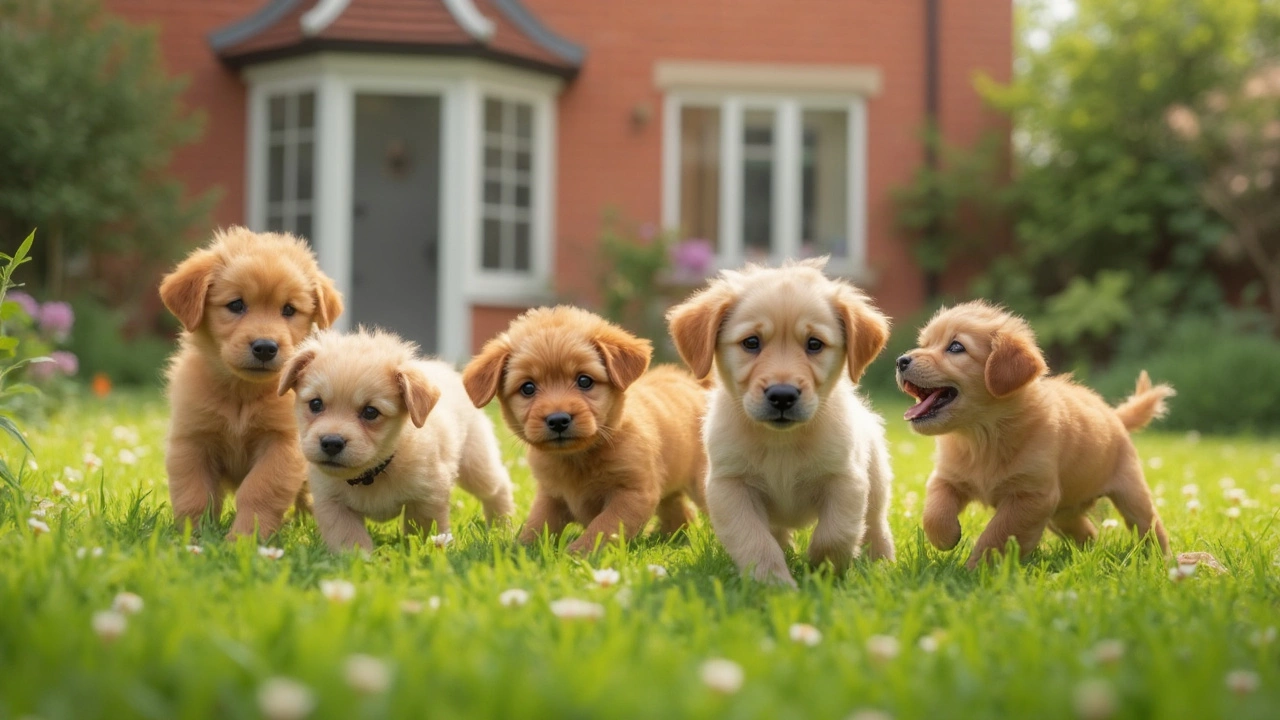When Is a Puppy an Adult? Simple Answers for UK Dog Owners
Everyone wonders when the cute, wobbly pup stops being a puppy and starts acting like a grown‑up dog. The answer isn’t a single number – it depends on breed size, health, and training. Knowing the milestones helps you adjust food, exercise, and vet visits so your dog stays healthy and happy.
Small Breeds vs. Large Breeds: Different Timelines
Small breeds (like a Jack Russell or Miniature Schnauzer) usually reach adult size by 9‑12 months. They finish most of their bone growth early, so you can start cutting back on puppy‑specific food around the one‑year mark.
Medium breeds (such as a Border Collie or Beagle) often become adults between 12‑15 months. Their muscles keep filling out a little longer, and you might notice a second growth spurt around the 14‑month point.
Large breeds (like Labrador, German Shepherd, or Golden Retriever) take the longest, often not fully mature until 18‑24 months. Their joints and bones need extra support, so keep joint supplements on the table until they hit the two‑year mark.
What Changes When Your Puppy Grows Up?
Food: Switch to a senior‑or adult‑formulated kibble once your dog hits the breed‑specific adult age. Look for a balanced protein level – too much can strain growing joints, too little can slow muscle development.
Exercise: Puppies love short bursts of play. Adult dogs need longer, more structured walks and mental challenges. Adjust the length of walks gradually to avoid over‑exertion, especially for large breeds.
Training: A puppy’s brain is like a sponge, but the adult dog still learns. Reinforce basic commands and introduce new tricks that keep their mind sharp. Consistency remains key.
Vet Visits: Schedule a health check at the end of the puppy stage. The vet will test growth plates, discuss vaccination boosters, and recommend any joint support if needed.
Behaviour: Expect some teenage‑like moods. A dog at 12‑18 months may test boundaries. Keep training positive and avoid harsh corrections – they can lead to fear or aggression later.
Remember, these ages are guidelines. If your dog seems smaller or larger than the average for its breed, talk to your vet. They can tell you if the growth is normal or if there’s an underlying issue.
Bottom line: Small dogs usually adult by one year, mediums by 12‑15 months, and giants by two years. Adjust food, exercise, and vet care accordingly, and enjoy watching your pup grow into a confident adult companion.
- Morgan Ainsworth
- 0 Comments
At What Point Is a Puppy Not a Puppy? Age, Behavior, and Growth Explained
Wondering when your puppy officially becomes an adult dog? This article breaks down the stages of puppy development, covering physical growth, behavior changes, and the exact ages when pups leave their puppyhood behind. Get concrete milestones for small, medium, and large breeds. Find out what to expect as your dog matures and how to support their growth at every stage. Packed with practical tips and surprising facts, it’s the guide every dog owner needs.
View More
